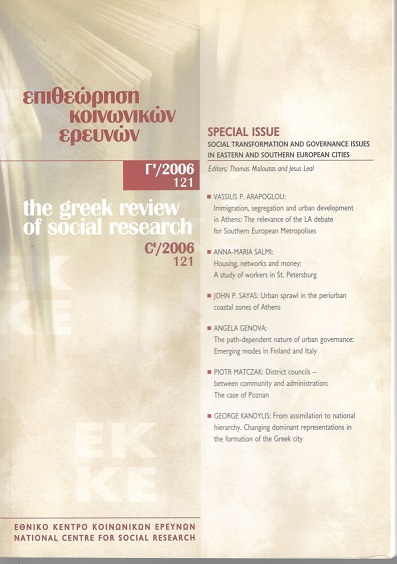District councils- Between community and administration: The case of Poznan
Abstract
Communities in cities were transformed significantly in the second half of the twentieth century. Weaker social ties and growing individualism have been combined with the growing role of formal institutional structures. Local governments became increasingly dominated by central structures. Decentralisation emerged as an attempt to reform this tendency. This article presents and analyses district councils in Poznan in respect of their success in promoting public involvement, accountability, and efficiency of public services delivery. It is argued that their impact on accountability, public control of authority, public involvement, and public activity is not significant. Instead, growing distrust of district councillors towards the city can be observed. Moreover, despite certain minor differences in administration costs, the structure of districts’ expenses is relatively homogeneous which may lead to the conclusion that district councils do not help to adjust the services to the varied inhabitants’ preferences.
Article Details
- How to Cite
-
Matczak, P. (2016). District councils- Between community and administration: The case of Poznan. The Greek Review of Social Research, 121, 137–156. https://doi.org/10.12681/grsr.9571
- Section
- Articles

This work is licensed under a Creative Commons Attribution-NonCommercial 4.0 International License.
Authors who publish with this journal agree to the following terms:
- Authors retain copyright and grant the journal right of first publication with the work simultaneously licensed under a Creative Commons Attribution Non-Commercial License that allows others to share the work with an acknowledgement of the work's authorship and initial publication in this journal.
- Authors are able to enter into separate, additional contractual arrangements for the non-exclusive distribution of the journal's published version of the work (e.g. post it to an institutional repository or publish it in a book), with an acknowledgement of its initial publication in this journal.
- Authors are permitted and encouraged to post their work online (preferably in institutional repositories or on their website) prior to and during the submission process, as it can lead to productive exchanges, as well as earlier and greater citation of published work (See The Effect of Open Access).



